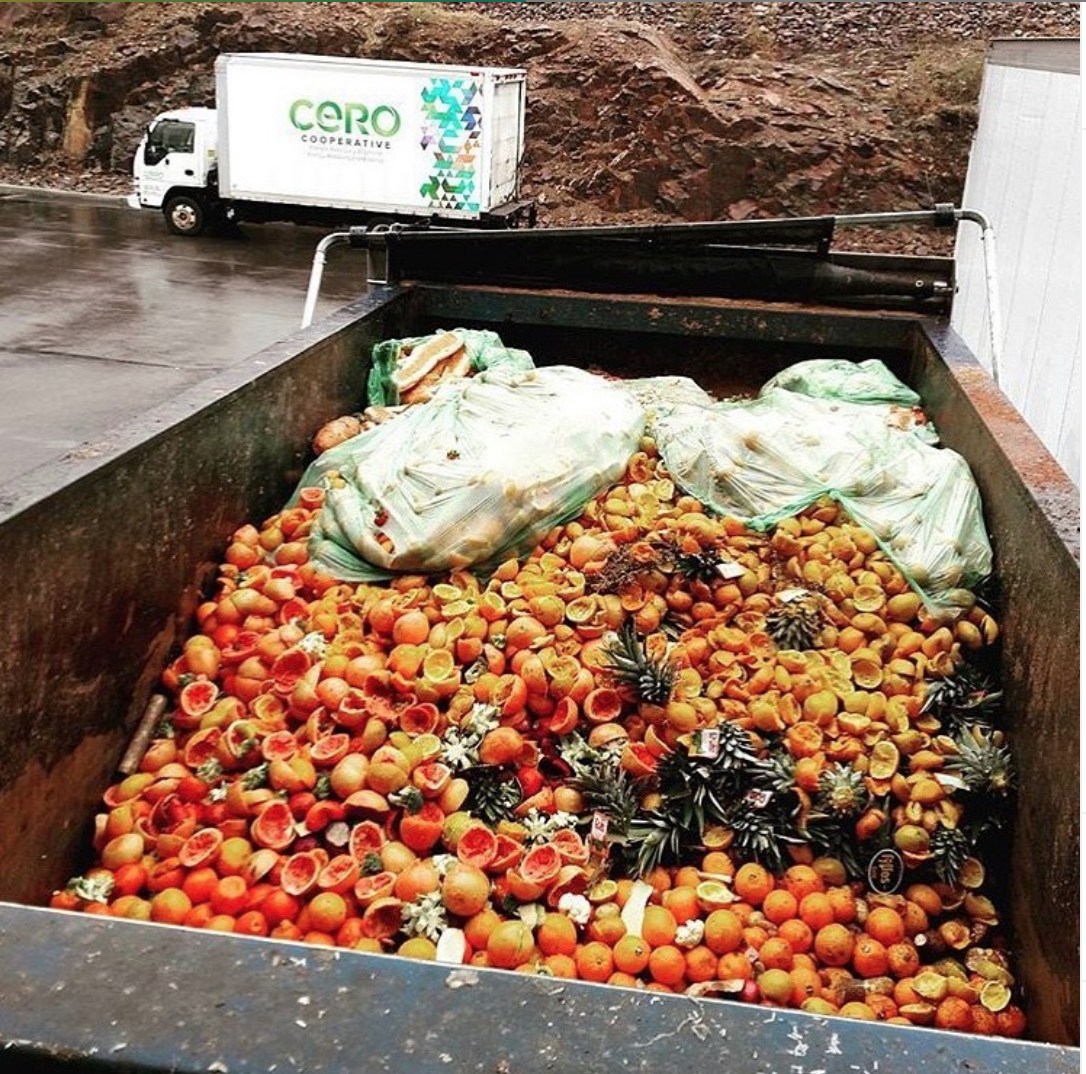The US economy is set to change drastically as dialogue and activism around climate justice and the ecological health of our planet enter the mainstream. Massachusetts has already begun important transitional work in multiple ways, notably through its Commercial Food Waste Disposal Ban. The Food Waste Ban, issued in 2014, initially required large-scale food enterprises that produce more than one ton of food waste per week to recycle this waste. It has since been expanded to affect businesses producing one half-ton or more per week. The policy helps our planet and communities by diverting waste from landfills and re-earthing nutrient-rich organic material. CERO recently sat down with Nelly Czajkowski, of DiSilva Fruit, to discuss composting at a large-scale food enterprise.
Nelly serves as the Organic Sales Manager and Quality Assurance Coordinator at DiSilva Fruit in Chelsea, MA. DiSilva Fruit sells organic and conventional fruit on the wholesale market and also re-packages fruit for customers throughout the Northeast. DiSilva is the largest citrus distributor and re-packer in New England. Nelly connected with CERO shortly after the Mass Waste Ban went into effect in 2014. “When the waste ban came out, we thought it was going to be more work,” Nelly said, “But it’s actually not. With the composting set-up from CERO, we don’t really have to reach out. It just goes.”
Large-scale food enterprises like DiSilva Fruit contribute substantially to the accessibility of fresh produce in Massachusetts, and as a byproduct, also produce organic waste. The Massachusetts Food Waste Ban focuses on such enterprises with a goal of diverting at least 35% of the state’s food waste from incineration and landfill disposal over ten years, resulting in more than 350,000 tons of annual waste diversion. In addition to food processors like DiSilva, many food manufacturers, universities, corporate cafeterias, and breweries are affected by the policy. Fortunately, as the state’s priority for composting has become clear, infrastructure continues to scale around it to support food enterprises looking to make this sustainable transition. CERO Co-operative has played a substantial role, with others, in building this infrastructure in the Greater Boston area.
A worker-owned cooperative, CERO began servicing organic waste generators in 2014, as the Food Waste Ban went into effect. From experience, CERO recognizes the needs of food enterprises in various industries and works to create a composting plan that suits the needs of each client. Nelly describes CERO’s impact on DiSilva’s operations as “a positive improvement.” She says, “I think that the customer service has been key to us and to the growth of our composting program because CERO has always been very responsive and very flexible in working with us.”
CERO prides itself on providing a clean, convenient service that is responsive to our customers’ evolving needs. We work out of 64-gallon toters, which our team picks up and returns to our customers’ sites clean and lined with biobags. The waste from CERO’s customers is re-earthed at local farms that produce food for the Greater Boston community and beyond. Nelly describes how CERO’s program can help a large-scale fruit and vegetable processor: “CERO provides those big green toters. We really like these because they’re mobile and small enough that we can wheel them around the facility to where we need them. As a result, this helps keep the facility very clean.”
Large-scale food enterprises like DiSilva are also reaping economic benefits from composting. Businesses in Massachusetts pay some of the highest fees for commercial trash hauling in the nation and composting typically decreases trash volume by 30% to 60%. Moreover, some businesses are able to decrease their purchasing costs by implementing composting. Nelly says of cost savings, “CERO is equivalent to our cost to throw away trash. Our goal was to be able to comply with the Waste Ban, but to have the costs stay on-par with our trash removal costs. Working with the toters and having to clean less, it is possible that we’ve come out a little bit ahead because of the labor cost of cleaning.” Indeed many of CERO’s customers see between 5% and 20% cost savings on waste hauling after implementing composting.
As the 2010-2020 Solid Waste Master Plan -- out of which came the Waste Ban -- draws to a close, CERO anticipates that the organic waste recycling industry in Massachusetts will continue to grow rapidly. As of 2015, it is estimated that only 10% of Massachusetts food waste was being diverted from disposal, meaning that there are still many large-scale food enterprises that stand to benefit from food waste recycling. To see whether your business is affected by the Waste Ban and to receive a free quote, waste assessment, or cost savings analysis for food waste recycling services, please visit CERO’s website. We are confident that large-scale food enterprises like DiSilva Fruit will continue to implement transformational composting programs, building on citizens’ increasingly urgent call for a transition to a regenerative, equitable economy.


